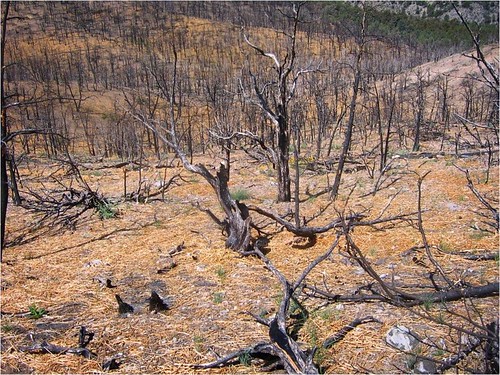This post is part of the Science Tuesday feature series on the USDA blog. Check back each week as we showcase stories and news from the USDA's rich science and research portfolio.
In recent years, wildfires have become larger and more severe. After the fires, large areas are without protective vegetative cover, making them prone to soil erosion when rains come. The forest soils contain many plant seeds, but the soils need to be stabilized until these seeds have a chance to germinate and re-establish plant cover that can stabilize the soil.
With funding from USDA’s National Institute of Food and Agriculture (NIFA), Forest Concepts, located in Auburn, Wash., developed an erosion control material from waste wood veneer called WoodstrawTM. The product reduces soil erosion more effectively than regular straw from wheat or other grasses that is light and can be easily blown away by high winds. Straw also contains the seeds of many unwanted weeds that were growing in the field at the time the straw was harvested.

WoodstrawTM consists of pieces of wood 4 to 10 inches in length and one-quarter inch in diameter. As it is much heavier than grass straw, it is much less prone to be moved by high winds. In tests done by Forest Concepts, the material was successfully used on forest areas with steep slopes and can last at least four years. And importantly for areas affected by wildfire, it doesn’t contain seeds from unwanted plants.
Along with forest lands, this material is used for erosion control in watersheds and also at construction sites. In addition, WoodstrawTM improves the sustainability of independent veneer mills by providing a value-added outlet for low-grade wood veneer.
NIFA awarded Forest Concepts a grant for $79,824 through the Small Business Innovation Research (SBIR) program. SBIR makes competitively awarded grants to small businesses to support advanced research related to important scientific problems and opportunities in agriculture. This Phase I award was used to determine technical feasibility of the concept. It was followed up with another SBIR Phase II award from NIFA for $296,000 for research and development, leading to commercialization.
